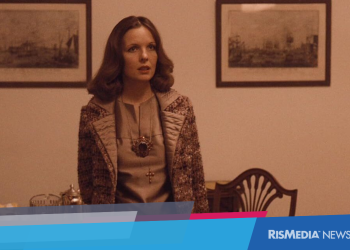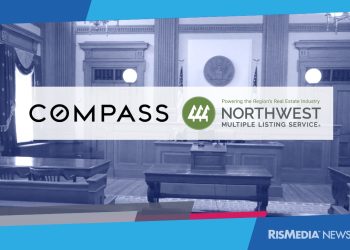(MCT)—R.C. and Stacy Davis lost their condominium to foreclosure in 2009, a bad break that seemed destined to keep them from buying another home for many years.
Yet last week — only three years after their foreclosure — the couple signed the papers to buy a four-bedroom house in Livermore.
Their avenue to homeownership? A loan backed by the Federal Housing Administration.
“We’re as happy as can be,” Stacy Davis says.
The ability to get an FHA loan so quickly after a foreclosure could be welcome news to thousands of people who lost their homes during the housing bust.
While mortgage giants Fannie Mae and Freddie Mac make people wait seven years after a foreclosure, the FHA will approve loans after three years, providing the buyer has established good credit and the ability to pay the mortgage.
“There’s definitely a movement of folks who have had a foreclosure to re-emerge and re-engage in the market,” says Dustin Hobbs of the California Mortgage Bankers Association. He says brokers have picked up on the trend.
The FHA, which is self-supporting, provides mortgage insurance for loans with low down payments and more flexible household income requirements. The Davis loan came with a 3.5 percent down payment plus required monthly mortgage insurance and a 3.75 percent interest rate on a 30-year loan.
“An FHA loan is a good option for those who can qualify,” says Paul Leonard, California director of the Center for Responsible Lending. And there couldn’t be a better time to try, he says.
“We are at near substantial price corrections,” he notes. That and low interest rates present “kind of a historic opportunity if people can qualify,” he says.
But it’s not clear whether there’s a flood or a trickle of new borrowers with foreclosures in their recent past.
The FHA says it doesn’t have data on how many of the loans it insures involve people who are buying homes after a foreclosure or short sale.
Mason McDuffie Mortgage in San Ramon is working with foreclosure victims.
“We are making loans and have made loans to people who have corrected their credit,” says Bill Godfrey of Mason McDuffie. “It’s nice to see.”
The borrowers are “people who waited three years, have a job and qualify,” Godfrey says. “They have their credit, have a job and things are looking better. They may not be perfect … but that’s part of the way to move forward. Clearly there is some thawing in that area.”
Some listing agents complain FHA loans take a lot more time and work. “It’s a hard transaction to complete,” says Bob Barrie, a real estate professional in San Jose, Calif.
Barrie says he is listing a home next week in Santa Clara, Calif., and if there are multiple offers, a buyer with an FHA loan will be at a disadvantage.
The Davis’ journey from foreclosure to new home began in 2005, when they bought a condo in Concord, Calif., for $262,000 at the peak of the market.
The couple’s interest-only, 100 percent-financed loan was a classic bubble product that became a formula for foreclosure during the housing crash.
To make things worse, the condo was in a rough neighborhood, says Stacy Davis, who is a high school special-education teacher in Fremont, Calif. Her husband is a senior producer for the Golden State Warriors basketball team.
They tried to sell the condo after their daughter was born, but no one wanted to buy it, Stacy Davis says. “We decided we’re going to try to stick this out. We owned it, and we would make it work.”
So they remodeled, put in a new kitchen and molding.
Meanwhile, the neighborhood deteriorated. Shopping carts piled up on the sidewalk, she said. Graffiti blossomed on walls.
After their son was born, they tried a short sale and found a buyer. “Within a week, an upstairs bathroom pipe busted open and flooded the whole place — the new kitchen, the molding, all destroyed. So the buyer backed out,” she says.
Their condo in ruins, they moved to a rented house in Dublin, Calif., and the bank foreclosed. Their credit rating dropped to about 500, but they were able to build it back to about 700.
“Within a year we were getting credit card applications. We didn’t feel like it affected our lives at all,” she says.
The purchase of the house in Livermore completed, the Davis family will move in early November.
Foreclosure Victims Buying Homes Again:
The Federal Housing Administration insures home loans so banks can be more flexible in making loans with lower down payments and more flexible income requirements. The FHA, which is self-supporting, was created in 1934 during the depths of the Great Depression to try to revive the housing market.
Here’s what the FHA says about loans after foreclosures and short sales:
– Previous mortgage foreclosure: Borrowers are generally not eligible for a new FHA-insured mortgage if, during the previous three years, their previous principal residence or other real property was foreclosed, or they gave a deed-in-lieu of foreclosure.
Exception: The lender may grant an exception to the three-year requirement if the foreclosure was the result of documented extenuating circumstances that were beyond the control of the borrower, such as a serious illness or death of a wage earner, and the borrower has re-established good credit since the foreclosure.
Divorce is not considered an extenuating circumstance. An exception may, however, be granted where a borrower’s loan was current at the time of the divorce, the ex-spouse received the property, and the loan was later foreclosed.
The inability to sell the property due to a job transfer or relocation to another area does not qualify as an extenuating circumstance.
– Borrower current at the time of short sale: A borrower is considered eligible for a new FHA-insured mortgage if, from the date of loan application for the new mortgage, all mortgage payments on the prior mortgage were made within the month due for the 12-month period preceding the short sale, and installment debt payments for the same time period were also made within the month due.
– Borrower in default at the time of short sale: A borrower in default on a mortgage at the time of the short sale (or pre-foreclosure sale) is not eligible for a new FHA-insured mortgage for three years from the date of the pre-foreclosure sale.
Exception: A lender may make an exception to this rule for a borrower in default on a mortgage at the time of the short sale if the default was due to circumstances beyond the borrower’s control, such as the death of a primary wage earner or long-term uninsured illness, and if a review of the credit report indicates satisfactory credit before the circumstances beyond the borrower’s control that caused the default.
On a short sale, long-term job loss or layoff would be considered an exception considered to be circumstances beyond the borrower’s control.
Note: Borrowers are not eligible for a new FHA-insured mortgage if they pursued a short-sale agreement on their principal residence simply to take advantage of declining market conditions to purchase a similar or superior property within a reasonable commuting distance at a reduced price, as compared with current market value.
SOURCE: Federal Housing Administration
©2012 San Jose Mercury News (San Jose, Calif.)
Distributed by MCT Information Services










